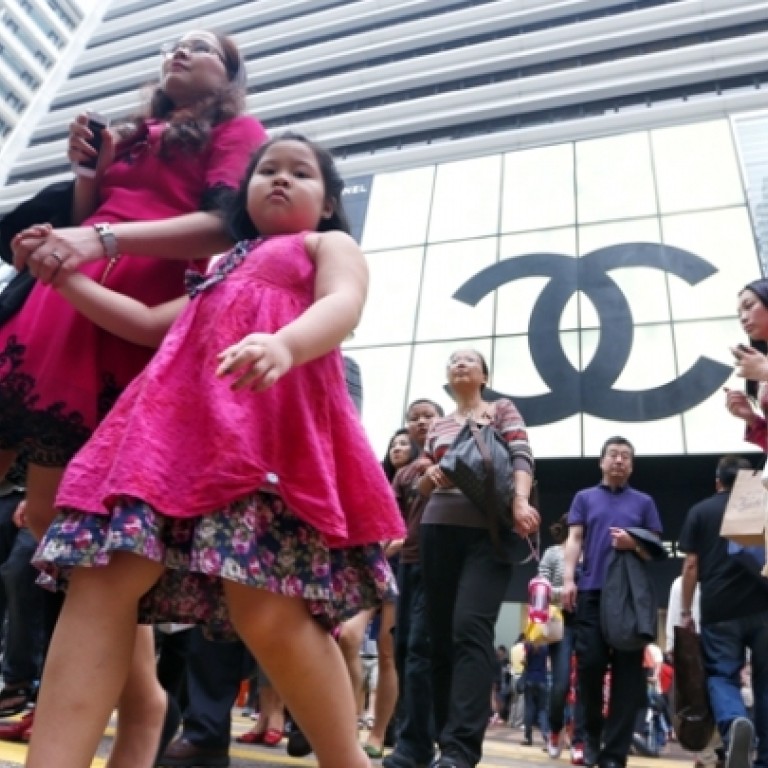
Chinese consumers' taste for luxury brands are evolving
Mainland consumers put cars top of their opulence rankings with beauty products, fashion and jewellery also popular, a new luxury index shows
Hong Kong-listed companies Chow Tai Fook, Coach and Prada have made their way inside the exclusive club of the "most sought-after luxury brands" on the mainland, a new survey says.
Major international brands in cars, fashion, beauty products, watches, jewellery and hotels continue to dominate the rankings found in the second edition of , which was released yesterday by New York-based market research firm Digital Luxury Group.

The report was based on a study of more than 400 brands in more than 680 million searches made by consumers last year on the mainland's two most popular internet search engines, Baidu and Google.
David Sadigh, the founder and chief executive of Digital Luxury, described the mainland luxury goods market as "rapidly evolving".
The leading luxury brands in the report's top-50 ranking included Audi, BMW, Chanel, Estee Lauder, Louis Vuitton, Lexus, Mercedes-Benz, Christian Dior, Porsche and Lamborghini. Hong Kong jewellery retailer Chow Tai Fook was ranked 17, United States-based luxury leather goods purveyor Coach at 22 and Italian fashion house Prada 24.
Brands that entered the top 50 for the first time were No 43 Elizabeth Arden, an American cosmetics company, and Swiss watchmaker Rado at No 50.
Those no longer ranked in the top 50 included French apparel company Moncler, which was No 42 last year, and Italian luxury goods firm Salvatore Ferragamo, previously at No 48.
"To stay ahead of the game, brands must have the ability to adapt quickly," Sadigh said.
Chanel, as an example, rose to No 3 in this year's top-50 ranking, up from No 5 the previous year. Louis Vuitton slipped to No 5, down from No 3 a year ago.
Sadigh said Chanel is benefiting "from the strong interest of Chinese consumers in its beauty products, which Louis Vuitton does not have".
"In the case of Louis Vuitton, [parent] LVMH has already shifted gears - putting the brakes on its global expansion, while raising prices and developing more upmarket leather products."
The report showed that cars remained the most searched-for luxury goods segment on the mainland, making up 53.5 per cent share of the data surveyed. It was followed by beauty products with 22.7 per cent, fashion 14.9 per cent, jewellery 6 per cent, hotels 1.8 per cent and watches 1.1 per cent.
Pablo Mauron, the general manager for China at Digital Luxury, said the increased sophistication of Chinese shoppers "contributed to the development of unique local preferences, independent from Western tastes".
That situation became apparent in the jewellery segment survey, in which Chow Tai Fook was ranked ahead of French jeweller Cartier and Austrian firm Swarovski.
In the car segment, Jaguar climbed five places to reach No 29 in this year's top-50 ranking because of a local connection. Interest in the brand swelled after British carmaker Jaguar Land Rover formed a domestic manufacturing joint venture with the mainland's Chery Automobile.
Consultancy McKinsey last year forecast the mainland to account for a third of the US$175 billion global market for luxury goods by 2015.

